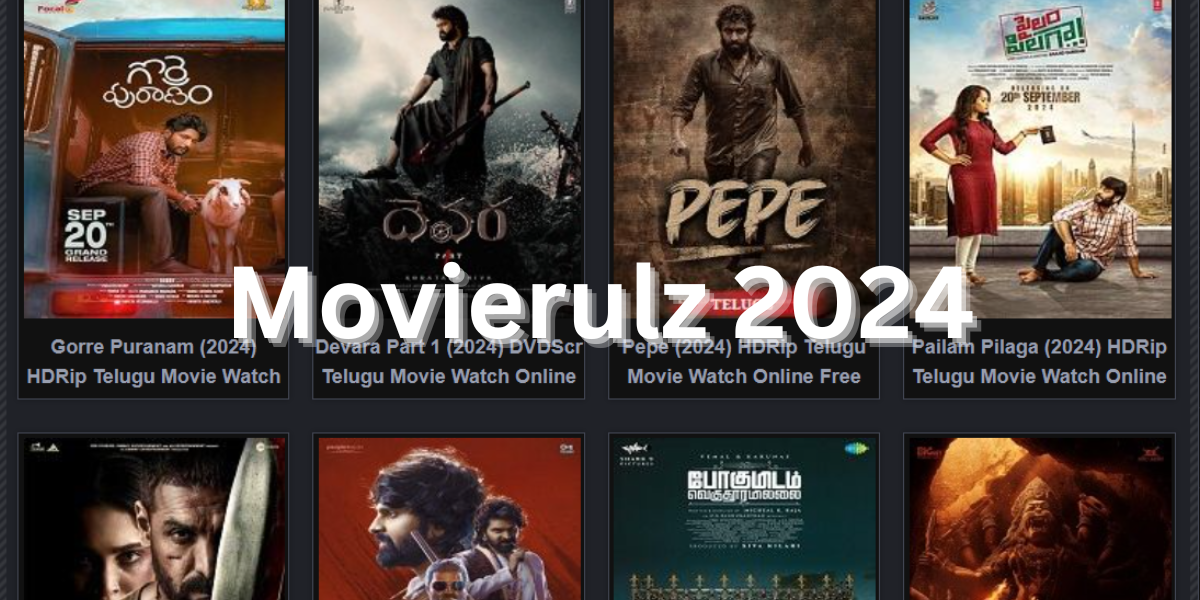Movierulz & Piracy: Latest News & Alternatives - What You Need To Know
Is the allure of instant entertainment clouding the ethical considerations of how we consume media? The proliferation of websites offering pirated content, while providing readily available access, poses a significant threat to the film industry and the livelihoods of those involved in creating the content we enjoy.
The digital landscape has dramatically reshaped the entertainment industry, offering viewers unparalleled access to a vast library of movies, television shows, and web series. Platforms like Zee5 provide legitimate avenues for enjoying Telugu cinema, offering a wide selection of titles in high definition. However, the ease with which pirated content can be accessed online presents a persistent challenge. Websites, some of which style themselves as news sources, often aggregate links to illegally hosted movies, circumventing copyright laws and depriving filmmakers and distributors of their rightful revenue. This creates a complex situation where the desire for immediate gratification clashes with the need to protect the creative ecosystem.
The following table outlines the core elements of the content provided, including information on specific websites, their practices, and related concerns.
| Category | Details |
|---|---|
| Website Focus | News and links related to movies, including Hollywood and South Indian cinema (Telugu, Tamil, Kannada, Malayalam). |
| Content Types | Movies, TV shows, web series, trailers, reviews, and news. Includes content in multiple languages (Hindi, English, Tamil, Malayalam, Telugu, Kannada). |
| Content Availability | Offers access to both legal and pirated content. Focuses on the latest releases, including HD quality options. |
| Content Sourcing | Aggregates links to content hosted on other websites, some of which may be illegal. |
| Piracy Concerns | Provides access to pirated movies, which is illegal in India. This includes films in various languages. |
| Revenue Impact | Piracy negatively impacts the revenue of film producers, distributors, and everyone involved in the movie production process. |
| Availability & Access | Movies available on multiple platforms; includes both legal and illegal. The main goal is to increase user accessibility. |
| Featured Content | Highlights of 2024 Telugu movies and upcoming releases (e.g., "Gymkhana" - April 25, 2025 release). |
| Legal Alternatives | Mentions legal platforms like Zee5 for accessing Telugu movies. |
| Geographic Scope | Focuses primarily on South Indian cinema, but also includes Hollywood and other regional content. |
The impact of piracy on the film industry is undeniable. It undermines the financial viability of film production, stifling creativity and limiting the resources available for creating new content. The revenue generated from legitimate channels, such as theatrical releases, streaming services, and home video sales, is crucial for funding future projects. When films are illegally distributed, these revenue streams are disrupted, potentially leading to a decline in the quality and quantity of films produced.
The issue of piracy is further complicated by the accessibility of pirated content. Websites offering illegal downloads often provide high-quality versions of movies shortly after their theatrical release, making it easy for viewers to access content without paying. This ease of access, combined with the low cost (often free) of pirated content, makes it an attractive option for many consumers. This creates a demand for pirated content, fueling the illicit activities of websites that profit from copyright infringement.
Another critical concern surrounding these websites is the potential exposure to malware and viruses. Downloading content from unofficial sources can pose serious security risks. Pirated files are often bundled with malicious software that can compromise a users device and steal personal information. This adds an extra layer of danger to the practice of accessing pirated movies, highlighting the need for consumers to be cautious and informed.
The legal implications of downloading and streaming pirated content are also significant. In many jurisdictions, accessing copyrighted material without permission constitutes copyright infringement, which can result in fines and legal action. Consumers who engage in such activities could face serious consequences, demonstrating the importance of respecting copyright laws and supporting legal avenues for content consumption.
In the context of the South Indian film industry, particularly Telugu cinema, the issue of piracy is particularly acute. The industry produces a large volume of films each year, attracting a significant audience both within India and internationally. The popularity of Telugu movies makes them a prime target for piracy, leading to substantial financial losses. This affects not only producers and distributors but also the thousands of individuals who work in the industry, including actors, directors, writers, technicians, and supporting staff.
Legitimate streaming platforms like Zee5 offer a viable solution for consuming Telugu movies legally. These platforms provide access to a wide range of films in high definition, often including exclusive content and behind-the-scenes features. By subscribing to these services, viewers can support the industry and enjoy their favorite movies without risking legal repercussions or exposing themselves to security threats. The availability of these platforms makes it easier than ever to access Telugu cinema legally and ethically.
The evolution of the film industry has introduced various other challenges, including the impact of web series, and the rise of OTT platforms. Web series, which are often produced with lower budgets than theatrical releases, present new opportunities for creative storytelling. However, the production of web series is also susceptible to piracy, further complicating the landscape of content distribution and consumption.
The rapid growth of the digital world and global viewership also brings up another important aspect of cultural exchange. Movies can play an important role in helping people understand new cultures and ideas. But, when illegal means are used to watch movies, creators don't benefit from their hard work. This means they can't keep making movies or tell new stories. Therefore, if we support the legal way, the industry can continue creating and sharing diverse content, which makes the world a more interesting place.
The future of cinema depends on a collaborative effort between consumers, content creators, and distributors. Viewers must make conscious choices to support legal platforms and avoid engaging in piracy. Content creators need to develop strategies to protect their intellectual property and promote their films through legitimate channels. Distributors need to work with platforms like Zee5 and other streaming services to provide accessible and affordable viewing options. By working together, the film industry can ensure its continued growth and sustainability.
In the Telugu film landscape, the year 2024 has already witnessed a range of releases. While specific box office figures for domestic releases may not be officially tracked as comprehensively as in some other film industries, the success of various movies can be gauged by critical acclaim, audience reviews, and worldwide collection estimates. The Times of India, for instance, provides lists of top movies, reviews, and details regarding cast and crew.
Looking ahead to 2025, movies like "Gymkhana" (releasing in Telugu on April 25th) illustrate the continuing production of content in various languages. This also includes upcoming releases in Telugu, Kannada, Tamil, and Malayalam. This wide range of content demonstrates the thriving nature of the South Indian film industry, catering to diverse audiences with a variety of stories and genres. The existence of a wide range of content increases the importance of the choices viewers make.
The impact of the digital era on film production is undeniable. The ease of access to high-quality recording equipment and editing software has empowered independent filmmakers to create content on a smaller scale, and for a limited budget. This has led to a surge in creative output, with emerging talent, and more diverse stories. However, it is important to recognize that even these projects are susceptible to piracy, affecting the ability of the creators to recoup their investment and make more content.
In conclusion, the battle against piracy is multifaceted, requiring a collective effort from all parties. By choosing legitimate platforms, supporting content creators, and being mindful of the legal and security implications of illegal downloads, consumers can play a crucial role in protecting the film industry. The future of cinema depends on responsible consumption and a commitment to upholding ethical standards in the digital age.


